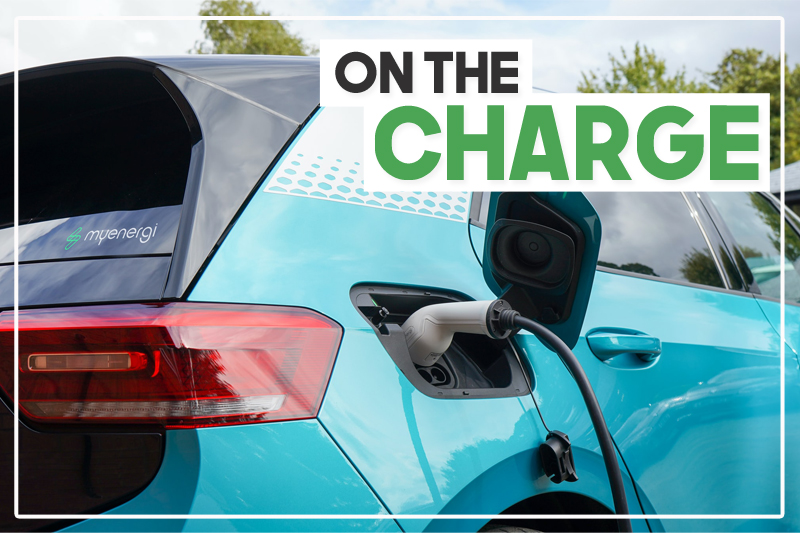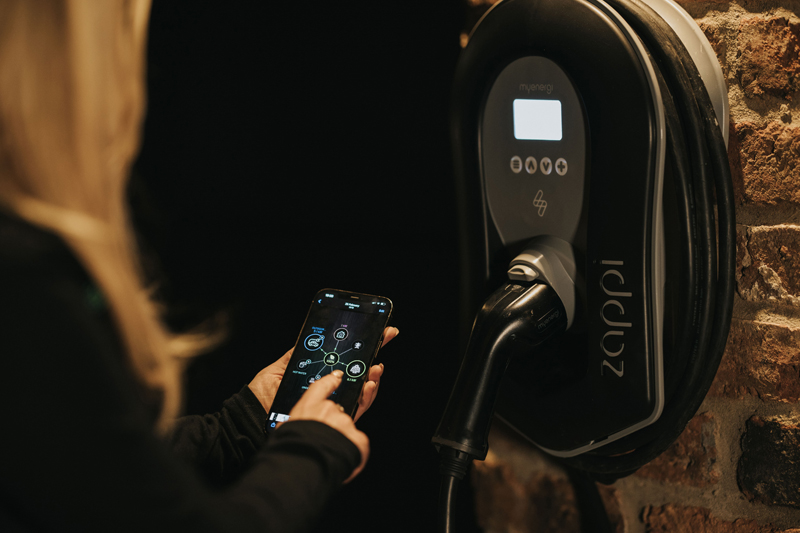With the popularity of EV ownership continuing to rise, being aware of the latest technologies is essential – especially as smart chargers become an ever-more common feature in UK homes. PEW spoke with Jordan Brompton, co-founder and CMO of myenergi, to find out more.
Growing EV demand in the UK is more than just a trend, it’s the representation of a societal and industrial shift to minimise the impact of the climate crisis. Over the past few months, data shows that a new EV was registered every 60 seconds in the UK. As a result, EVs now make up 35.4% of the UK’s new car sales – an astonishing 87.9% year-on-year increase. Considering that, just five years ago, the market share for all ‘alternatively fuelled vehicles’ was only 8%, its fair to say that the transition to electrification is well and truly underway.
EV charging fundamentals
Given the magnitude and speed of this change, understanding the various charging technologies and latest innovations is essential to meeting and predicting demand. Just as the transport industry has evolved, so too have the charging systems used to keep these vehicles moving. From rapid charging to intelligent home systems that protect the grid, novel technologies are enabling a more sustainable transport system.
The charging landscape for electric vehicles consists of three main levels. ‘Slow charging’ simply involves plugging the car into a wall socket, achieving around 2kW of power and taking 30 to 40 hours to charge an EV. This is not very common and seldom used, clearly not particularly practical.
‘Fast charging’ uses a conveniently mounted charging system and standard 240V AC supply. Depending on the home or building, the supply will determine the power available. Our zappi charger, for example, comes in both 7kW and 22kW variants, with the first designed for single-phase homes and the latter for three-phase properties. Chargers like the 7kW zappi can recharge the average electric car from empty in a little over 7 hours, making them perfect for overnight recharging.
Then comes the ‘rapid charging’. From 50kW to 350kW, users can reach 80% vehicle charge in between 20 and 40 minutes. This infrastructure-level network is designed to support long-distance journeys and not necessarily ‘daily’ charging.
The latest charging innovations
Charging technologies extend far beyond plugging in and topping up. Things like bi-directional charging, for example, which allows electric vehicles to not only receive energy from the grid but also send it back, acting as a modular, spread-out battery system. It brings some interesting benefits, including reductions in grid instability and energy storage during power outages. For those seeking added peace of mind, home battery systems are also growing in popularity, particularly among those with self-generated renewables seeking energy independence.
Another interesting idea is wireless charging. Yes, the very same used for your phone could soon be used for vehicles too. While it is likely a long way off, Tesla recently acquired a German start-up specialising in the technology. This could be an interesting solution for large parking structures and infrastructure, but probably far too expensive for domestic applications.
What is smart charging?
In the UK, smart charging is a government-mandated system that uses data and energy innovations to deliver benefits to both consumers and the grid. It enables motorists to charge electric vehicles when electricity is cheaper or cleaner. Smart charging uses internet connectivity to intelligently adapt the entire network to meet demand, optimising efficiency by monitoring and responding to peaks and troughs. As of last year, all new charge points sold in the UK were required to feature smart functionality, as well as complementary cyber and physical security systems.
State-of-the-art at home
Much of the discussion focuses on infrastructure and industry-led developments, but perhaps the most important shift arising from EV charging is at home. At myenergi, we have long championed energy independence and the integration of intelligent energy systems in domestic applications. Our smart EV charger, zappi, for example, has been designed to seamlessly integrate with renewable generation, giving motorists a ‘zero carbon’ recharging option at home.
We’re also the brains behind eddi, a power diverter that maximises the utility of self-generated renewables by using excess energy to heat water or rooms; as well as libbi, a modular battery storage system. Each of our game-changing technologies can be seamlessly controlled through the myenergi app, actively facilitating the transition to electrification.
Ready to charge?
The path to electrification is not simply about shifting from fossil fuel to electric vehicles, it is also a transition to smarter home energy systems and a robust, powerful charging infrastructure. As the UK continues to legislate more sustainable technologies for new build homes and charging networks, existing homeowners are also seeking eco-smart solutions. From basic wall-mounted chargers to complete home energy smart systems managing renewable generation and vehicle bi-directional charging, the landscape is a dynamic full of potential.
For more information, click here





